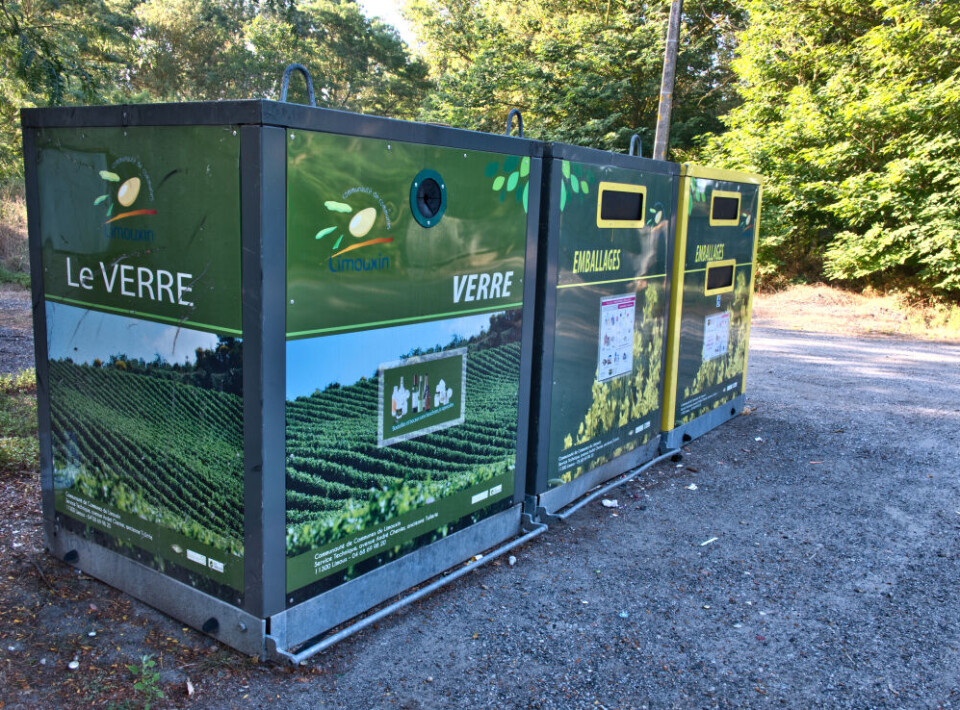-
Dunkin’ doughnut chain to open in France in May
Its flagship store will be in Paris’ ninth arrondissement
-
Proposed law will stop French banks from closing accounts for no reason
The legislation has sparked debate over financial regulations
-
Health reimbursements linked to income supported by French state auditor
The controversial move aligns with prime minister's plans to cut costs
Four everyday eco-friendly changes launching in France this year
We look at the details of four small-but-significant developments

1. Help for repairs of electronic goods and gadgets
As part of the anti-waste plan introduced last year, people will now be able to benefit from a grant for help to repair household items. The money will be taken off the repair bill.
These can include:
-
White goods (dishwashers, tumble dryers, built-in ovens, stoves, stand-alone cookers, and kitchen stove hoods)
-
Electronic equipment (laptops, digital cameras, audio or video equipment)
-
Small kitchen appliances (coffee machines kettles, blenders or toasters)
-
Sports and entertainment devices (games consoles, drones, sports equipment, or musical instruments)
-
Electric garden tools
Click on the green Réparer button on the Ecosystem website to start the process.
Read more: New grant launches to repair home goods in France: How much for what?
2. Paper till receipts to become optional by default
From April 1, paper till receipts will no longer be printed automatically by default. Customers can still request a receipt if they wish.
Shops will continue to give receipts but in digital format. These can be sent via text or email, or seen on the store’s app (for example, at a supermarket).
Read more: How do we prove purchases if till receipts are disappearing?
Some goods (especially more expensive items with a longer return date, such as electronic gadgets) will still come with receipts automatically.
The aim of the change is to save paper as 30 billion till receipts are currently printed in France every year. Most are not even looked at, end up in the rubbish bin and are not recycled due to their small, easy-to-lose size.
Thierry Desouches, director of communications for Système U, which began trialling the system in April 2021, said: “In our 1,600 stores, [stopping automatic receipts] means we will save 40,000 kilometres of paper roll. Small gestures like this can all add up to make a big difference.”
3. Reusable plates and cutlery at eat-in fast food restaurants
France now requires fast food restaurants to use reusable cutlery and plates for customers who eat in.
Single-use packaging such as plastic and paper will still be allowed for take-out orders but not for use inside the restaurant.
McDonalds is one of the companies that has been trialling using reusable, washable crockery and cutlery that are equipped with a geolocalisation, RFID electronic chip inside, to prevent theft.
The chip does not link a customer’s identity to the item, but it does enable the restaurant to keep track of their reusable crockery stock number in real-time and detect if any pieces are taken or accidentally thrown away.
In a statement, McDonalds said: “We have placed RFID chips to track how often pieces are reused, and to ascertain the environmental impact. This absolutely does not allow us to geolocalise our clients.”
The company said that similar systems have been used for years within the logistics industry, and that the chips work in the same way as a QR code or barcode, but are quicker to scan
4. Rubbish and recycling bin colours standardised
Recycling and rubbish bin colours will now be the same nationwide (once the changeover is complete).
Recycling bins in communal spaces will be yellow. All household packaging, even plastic items, will need to be recycled in these bins.
In some towns, there will be an extra bin – coloured blue – for paper and cardboard too.
More measures
Other eco-friendly measures in France include grants for electric vehicle purchases, more or extended low-emission zones, stricter rules on carbon neutrality claims for products, and a bigger budget for eco-friendly home renovation grants.
Related articles
18 changes for residents and property owners in France - January 2023
Champagne bottles in France may soon be wrapped in eco-friendly paper
What options are there for eco-friendly funerals in France?
























